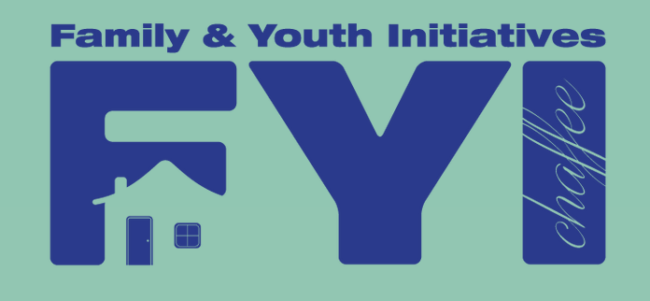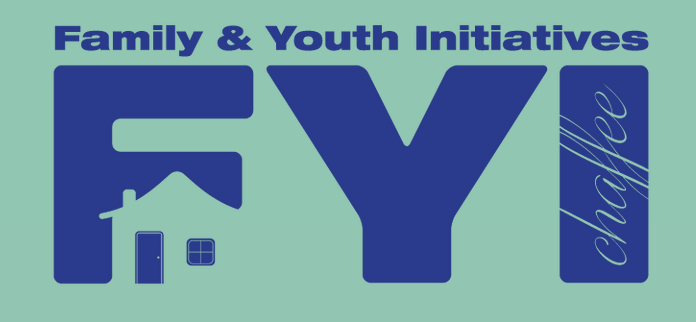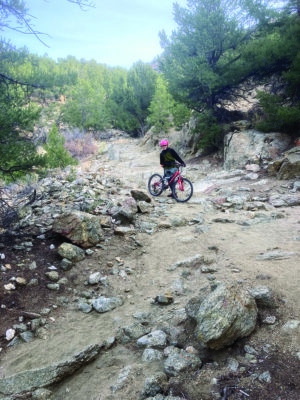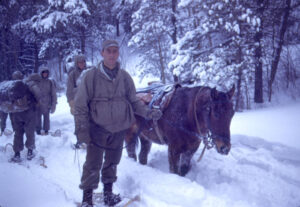
THE FAST-PACED RUSH AND BUSTLE of summer Main Street traffic had slowed to a trickle of locals entering shops and the few hardy visitors enjoying the views. I was there to meet Zeb McCain — a local author, tile guru and volunteer facilitator for the Nurturing Fathers Program — for lunch at a local eatery. As soon as we sat down, he was approached by a friend he called the “dough wizard,” purporting him to be the “magic in the rise of bread,” even at these high elevations. After a quick greeting, introduction and check-in, the baker went back to work, and McCain turned his attention back to our conversation. His role with the Nurturing Fathers Program makes him a touchstone for a variety of fathers throughout the community. Those fathers have goals — how to be better than their own fathers and break the habits they carried with them from those childhood experiences.
The Nurturing Fathers Program is a branch of the Nurturing Parents Program, both of which are under the grant-funded umbrella of Family & Youth Initiatives, a part of Chaffee County Human Services. FYI, as the group is commonly referred to, provides classes for families with children of various ages — zero to five, six to 12 and adolescents — as well as groups specifically for mothers and one for fathers. These programs were developed in 1998; the Nurturing Fathers Program was specifically designed with the intention of “developing attitudes and skills for male nurturance.”
Ann Marie Swan, one of the social workers with FYI, stressed that the intention is to focus on empathy, the idea that fathers who can understand and share the feelings of others, especially their own children, will have stronger, longer-lasting, healthier relationships.
McCain’s teenage son approached him four years ago to join FYI’s adolescent parenting classes; he agreed, and McCain, his wife and his son went through two offerings of the course. In the final session of the class, McCain and two other fathers were huddled together drinking coffee and commented on the fact that they were the only three fathers present. One dad mentioned how amazing it would be to have a class just for fathers, that he regularly felt disconnected from other men.
Sarah Green, another FYI social worker, overheard the conversation and replied that there actually was such a class, but it was in need of a volunteer facilitator. Would one of them be up for it, she asked? McCain and another father went through a rigorous training program before offering the initial in-person course of the Nurturing Fathers Program three years ago.
The course is 13 weeks long, and the classes meet on Monday evenings. There was a remotely attended session during the height of the pandemic; otherwise, all sessions have been held in Buena Vista. The next course, starting in late January, will take place in Salida. Due to demand, it is likely there will be another course offered in the summer, but the location has not been determined. The groups are capped at 12.
Swan and McCain both noted that attendance is essential because of the collective trust built within the group throughout the weeks. So if fathers miss too many weeks, they are asked to sign up for the next course. “Continuity, confidentiality and mutual trust are musts,” pointed out McCain.
The classes start with a dinner of food either donated or purchased as part of the FYI grant. After 30 minutes or so, the men, the volunteer facilitators and the social worker all gather in a circle to begin the session. The circle is important, McCain stressed, so that no one is “above” anyone else. They begin by checking in and reviewing the prior week’s discussion and any “homework” for the week; the homework is often a reading, a practice exercise or just a reflection of their parenting choices over the week.
“What is so powerful about Nurturing Fathers is the quality (of) immediate application; they can use the information that day. They are exposed to ideas they have never heard of before and they can take it home with them to (use) when they put their own kids to bed that night,” McCain pointed out.
EACH WEEK THE GROUP TALKS through skills such as mental health, self-care, anger management, handling stress, nurturance practices, proactive discipline and co-parenting skills. Swan clarified that she attends classes and observes to see what the group needs and what they may want to talk about; she is a facilitator who can join in from a parent’s perspective or ask a probing question in a different way to rekindle a conversation.
Swan observed that McCain gets the fathers to dig in, that he can really support them in getting to the heart of their own stories. “I really respect that he is irreverent in a really fresh way; he can really see what the men need and what they want to talk about.” She is seeking other fathers who may want to step into a volunteer facilitator role and bring their own set of skills and experiences to the courses. She noted that the remote nature of the valley, as well as long workdays and weeks, can keep fathers disconnected from one another and even from their own families.She also pointed out that sometimes parents look for authority over their children; FYI and these programs offer alternatives to physical discipline. She emphatically stated, “It’s not about authority; it’s not about obedience. It’s about how connected we are with our kids.”
With the same understanding, McCain pointed out how sometimes dads come to the group and immediately say, “Give me the answers. I just want to be a good dad.” To this, he replies, “The answers aren’t in this book. They are here, in the circle. It’s a process.”
He also believes that how the fathers care for themselves, how they treat themselves as men, will influence how they treat others. For example, he described an acronym the men work through — SPICES, which stands for Social, Physical, Intellectual, Creative, Emotional and Spiritual — explaining how each area needs to be fulfilled for the fathers to feel grounded and present as people and as parents.
“It can be a tough shift,” said Swan. “If we are not intentional, we tend to parent how we were parented.”
The group is designed to create a safe space for men to share their struggles and to encourage them to collectively share solutions. The intention of the program is for fathers to become empowered, to offer skills and techniques to solve problems. “It helps them move beyond the idea that it is their kid who needs to be ‘fixed,’” said Swan. The 13-week course ends with a completion ceremony. “We don’t call this a ‘graduation’ because we never graduate from being parents,” both Swan and McCain emphasized. “Being a parent is a work in progress.”
“Sarah and Ann Marie really bring it; they really show up for everyone,” McCain said. The program also brings in guest speakers throughout the courses. A recent guest was Bryan Maddox, a social emotional intelligence trainer from Fort Collins who has worked with New Belgium Brewing Co., the National Park Service and the Rosebud Indian Reservation. The participants come from all walks of life, and each class is different, depending on the fathers who show up.
FYI also supports the members of the group through their grant in a variety of other ways. Sometimes it can be a gas card to be able to get to the meeting. Swan pointed out that they can really tap into community resources and organizations, often sending the fathers home with food — local beef, cheese, peaches, bread — saying, “We are doing anything we can. We seek to support positive lives for our families.”
The Nurturing Parent program has recently been revamped, 24 years after its original launch. In addition to updated materials, there will be podcasts and other guest speakers. Green and Swan welcome additional volunteer facilitators. The winter session started Jan. 17, but a summer session is a possibility, based on demand.
Anyone interested in volunteering as a facilitator or joining the wait list for future sessions can contact Swan at aswan@chaffeecounty.org.
Starr Hill was raised off the grid in tipis and old mining cabins between Fairplay, Como, Hartsel and Leadville. Now a teacher, she is raising a family of her own and working on a memoir of lessons she learned growing up off the grid.




